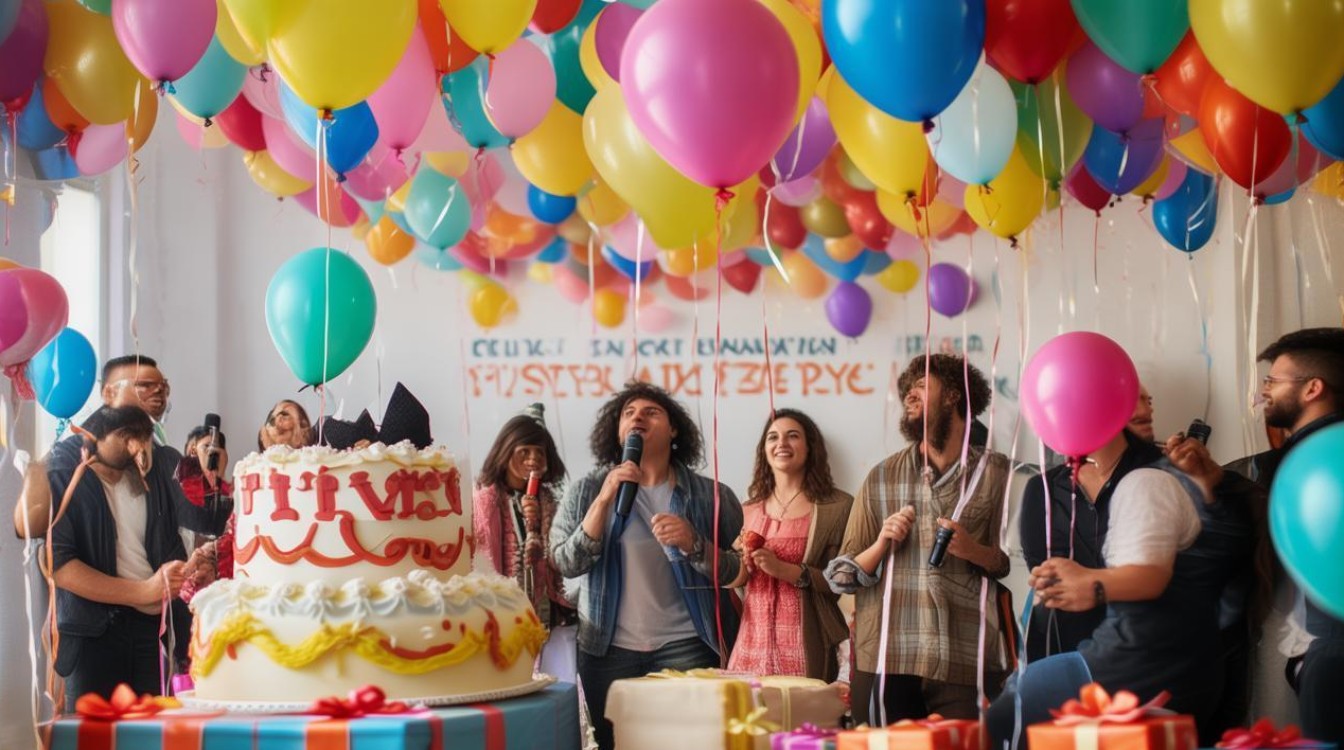Introduction to Discussing "Birthday" in IELTS Speaking
The topic of "birthday" is a common and versatile theme in IELTS Speaking tests, appearing across all three parts. It allows candidates to showcase their vocabulary, grammar, and ability to express personal experiences, opinions, and abstract ideas. A well-structured response about birthdays can demonstrate fluency, coherence, and cultural awareness, all of which are key to achieving a high band score. This article explores how to effectively discuss birthdays in the IELTS Speaking module, providing vocabulary, sample answers, and strategies to enhance performance.

Part 1: Personal Experiences and Descriptions
In Part 1, examiners typically ask straightforward questions about birthdays, such as:
- Do you celebrate your birthday?
- How did you celebrate your birthday last year?
- What kind of birthday gifts do you like?
To answer these questions effectively, candidates should use descriptive language and specific details. For example:
Sample Answer:
"Yes, I celebrate my birthday every year. Last year, I had a small gathering with my close friends at home. We cooked a meal together, baked a chocolate cake, and shared stories. It was a cozy and memorable evening because I felt surrounded by love and laughter. As for gifts, I prefer meaningful presents over expensive ones. Last year, my sister gave me a handmade photo album with pictures of our childhood, which touched me deeply."
Key Vocabulary:
- Gatherings: parties, celebrations, reunions
- Memorable: unforgettable, special, noteworthy
- Meaningful: significant, heartfelt, precious
Part 2: Long Turn (Cue Card)
Part 2 often involves a cue card like this:
"Describe a birthday celebration you enjoyed. You should say:
- Whose birthday it was
- What you did during the celebration
- Who was there
- And explain why you enjoyed it."
A strong response should be structured with clear paragraphs and vivid details. Here’s an example:
Sample Answer:
"The birthday celebration I enjoyed most was my best friend’s 25th birthday last month. It was a surprise party organized by her family and me. We decorated the living room with fairy lights, balloons, and her favorite flowers. For activities, we played a game where everyone shared a funny memory involving her, and we also watched a slideshow of her life milestones. Around 20 close friends and family members attended, including her childhood friends who traveled from another city. I enjoyed this celebration because it reflected how much she is loved and appreciated. Seeing her emotional reaction when she walked into the room was priceless, and it strengthened our bond as friends."
Structure Tips:
- Introduction: State whose birthday it was and why it was special.
- Details: Describe the preparation, decorations, and activities.
- People: Mention who attended and their roles.
- Feelings: Explain why the celebration was enjoyable.
Part 3: Abstract Discussion and Opinions
Part 3 delves deeper into themes related to birthdays, such as cultural differences, commercialization, or the significance of aging. Questions might include:
- How do people celebrate birthdays differently in your country and other countries?
- Do you think birthday celebrations are becoming too commercialized?
- What are your thoughts about aging and birthdays?
Sample Answer (Cultural Differences):
"In my country, China, birthdays are often celebrated with family gatherings, where the birthday person receives red envelopes with money as a symbol of good luck. Long noodles are also common, representing longevity. In contrast, in Western countries like the United States, parties with friends, birthday cakes, and gifts are more prevalent. For children, themed parties and piñatas are popular, while adults might prefer dinners or outings. These differences reflect cultural values: China emphasizes family and tradition, while Western cultures focus on individualism and social connections."
Sample Answer (Commercialization):
"I believe birthday celebrations have become increasingly commercialized. Businesses capitalize on the occasion by promoting expensive gifts, lavish parties, and luxury experiences. For example, some people feel pressured to throw elaborate parties or buy costly gifts to meet societal expectations. This commercial aspect can overshadow the true meaning of birthdays—honoring relationships and personal milestones. However, it also boosts the economy, creating jobs in event planning, retail, and hospitality."
Vocabulary and Grammar Focus
To excel in the IELTS Speaking test, candidates should use a range of topic-specific vocabulary and grammatical structures. Below is a table of useful words and phrases related to birthdays:
| Category | Vocabulary/Phrases |
|---|---|
| Types of Gifts | Handmade, personalized, experiential, sentimental |
| Activities | Cutting the cake, singing "Happy Birthday," surprise party |
| Feelings | Overjoyed, touched, nostalgic, delighted |
| Cultural Terms | Red envelopes, longevity noodles, milestone birthdays |
Grammar Tips:
- Use conditional sentences: "If I could celebrate my birthday anywhere, I would choose a beach in Bali."
- Employ discourse markers: "However," "On the other hand," "In contrast" to compare ideas.
- Practice past, present, and future tenses: "I celebrated my birthday last year (past), but I am planning a trip next year (future)."
Common Mistakes to Avoid
- Overusing Simple Vocabulary: Replace "good" with "enjoyable," "wonderful," or "memorable."
- Lack of Specifics: Avoid vague answers like "I had a fun party." Instead, describe activities, decorations, and emotions.
- Ignoring Cohesion: Use linking words to connect ideas smoothly.
FAQs
Q1: How can I improve my fluency when talking about birthdays?
A1: Practice by recording yourself answering common birthday questions. Focus on speaking continuously without long pauses, and use fillers like "Well," "You know," or "Let me think" naturally. Additionally, learn and memorize topic-specific phrases to reduce hesitation.
Q2: Is it better to talk about a real or fictional birthday celebration in Part 2?
A2: It’s generally better to talk about a real experience because it allows for more authentic and detailed descriptions. However, if you cannot recall a specific event, a fictional story is acceptable as long as it is logical and vivid. The key is to demonstrate your ability to structure and elaborate on a topic.
Conclusion
Discussing birthdays in the IELTS Speaking test offers an opportunity to display language proficiency and creativity. By preparing topic-specific vocabulary, structuring answers clearly, and practicing fluency, candidates can approach this theme with confidence. Remember to balance personal anecdotes with broader discussions, and always aim for clarity, coherence, and cultural relevance. With these strategies, you can turn a simple topic like "birthday" into a chance to impress examiners and achieve your desired band score.











